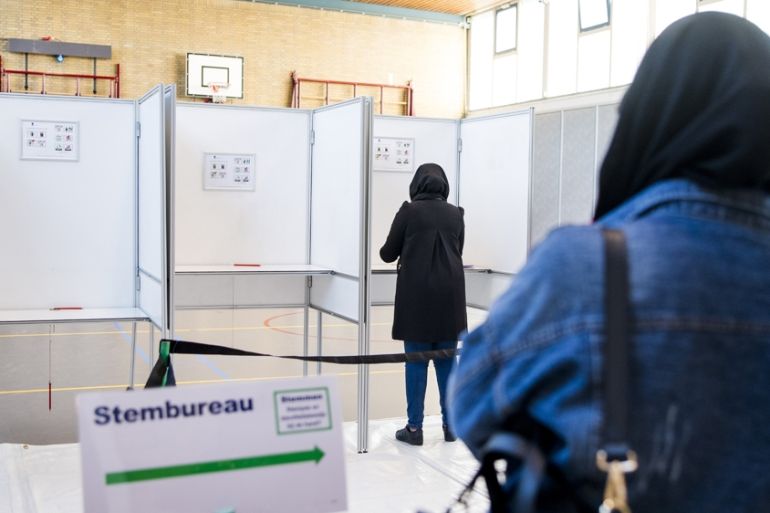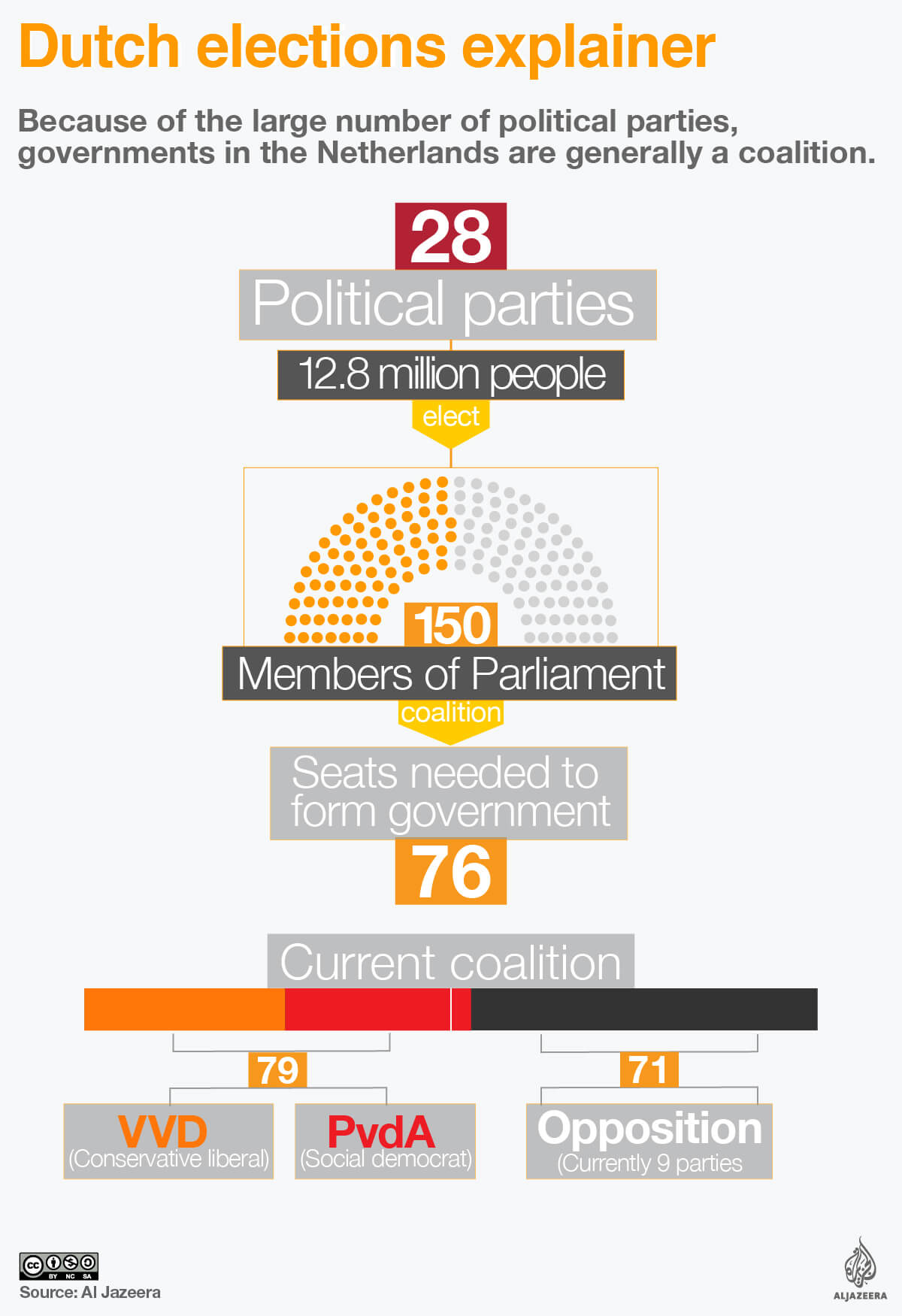Dutch election: High turnout in key national vote
Crucial vote boils down to a race between Prime Minister Mark Rutte’s Liberals and far-right party of MP Geert Wilders.

Millions of Dutch voters cast their ballots on Wednesday in a test of the “patriotic revolution” promised by far-right MP Geert Wilders, as Western Europe closely watched the election and braced itself for the outcome.
Following last year’s shock Brexit vote – and Donald Trump’s victory in the United States – the Dutch vote is being seen as a litmus test of the strength of far-right and populist parties before key elections in France and Germany later this year.
Keep reading
list of 4 itemsJacob Zuma’s nine lives: How South Africa’s ex-president keeps coming back
A flash flood and a quiet sale highlight India’s Sikkim’s hydro problems
Ruling HDZ party wins most seats, but no majority in Croatia election
The Dutch vote, which has been overshadowed by a diplomatic dispute between the Netherlands and Turkey, has essentially come down to a tight race between Prime Minister Mark Rutte’s centre-right party and that of far-right, anti-Islam populist Geert Wilders.
In advance of the election, opinion polls showed Rutte’s liberal VVD narrowly leading the race, and even if Wilders’ PVV emerges as the biggest party in parliament, it is unlikely to obtain the majority of the 150 seats enabling it to form a government.
Most parties have pledged not to govern with the PVV.
READ MORE: Dutch Muslims reflect on Geert Wilders before vote
As many as 13 million people were eligible to vote in Wednesday’s election and 28 parties were competing for the 150 seats in the Dutch lower house of parliament.
Turnout was predicted at about 80 percent, 8 percent lower than the record of 88 percent achieved in 1977.
Polls close at 2000 GMT, with exit polls expected shortly after.
“This is a crucial election for the Netherlands,” Rutte said as he voted. “This is a chance for a big democracy like the Netherlands to make a point … to stop this … the wrong sort of populism.”
One Muslim voter told AFP news agency that Wilders’ fiery anti-Islam rhetoric had prompted her family to come out and vote.
“My mother has never voted before, but now she has and encouraged the whole family to do so because the situation is serious.”

‘European fight-back’
Al Jazeera’s Laurence Lee, reporting from The Hague, said the bumper turnout could see pro-European parties make significant gains.
“The vast-majority of Dutch people want to remain in the European Union so there’s a good reason to assume they’ve come out to bolster it, rather than undermine it, which is what Wilders wants to do.
“What’s really helped Rutte is that in the last few days, amid the diplomatic crisis with Turkey, he’s displayed himself as a statesman, as he tried to de-escalate the situation. He’s been calm.
“In contrast, he’s portrayed Wilders as this frothing lunatic sitting on sofa tweeting that the Turkish ambassador must be thrown out and that Turks have to leave the country.
“And that comparison with [US President Donald] Trump is very powerful because the Dutch – as a body politik – don’t like Trump at all.”
Wilders, 53, has vowed to shut mosques, ban the Quran and close the country’s borders. He also wants to pull the country out of the European Union , an institution that it helped found, in a so-called Nexit.
READ MORE: Who votes for Geert Wilders?
Speaking to reporters after he cast his ballot, Wilders said: “Whatever the outcome of the election, the genie will not go back into the bottle. This patriotic revolution, whether today or tomorrow, will stay.”
Rutte, seeking to lead the Netherlands for a third successive term, is a liberal free-marketeer championing this year’s election on a pledge of safety and stability.
Analysts said his uncharacteristically strong stance since the weekend in a diplomatic crisis with Turkey – when Dutch authorities expelled one Turkish minister while another was refused permission to fly into the country to attend a political rally – has boosted his image with voters.
Litmus test
Final polls released late on Tuesday appeared to show Rutte pulling away from Wilders, crediting the VVD with coming top with 24 to 28 seats.
Wilders was seen as slipping yet again and barely clinging on to second place with between 19 and 22 MPs. That would still be well up on the 12 MPs his party has in the outgoing parliament, however.
Closing in on Wilders were long-standing parties the Christian Democratic Appeal (CDA), credited with 19 to 21 seats, and the Democracy Party (D66) with around 17 to 19 MPs. Both would be natural coalition partners for Rutte.
While traditional Labour has fallen sharply this year in the polls, the left-wing GroenLinks and its charismatic young leader Jesse Klaver are enjoying a huge boost.
The 30-year-old Klaver said it was “time for a new leadership” and called for the Netherlands to welcome more refugees .
He has boosted his party in the polls and may win 16 to 18 seats, which could place him in a powerful kingmaker role.
It reportedly takes an average of three months to form a coalition, but observers predict it may take longer with four or even five parties needed to reach the 76-seat majority.
|
|